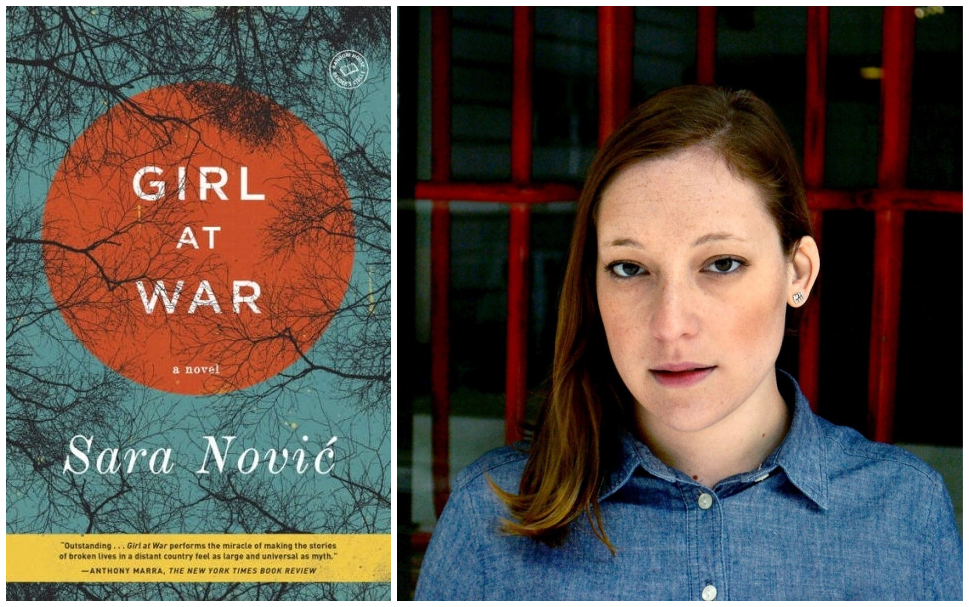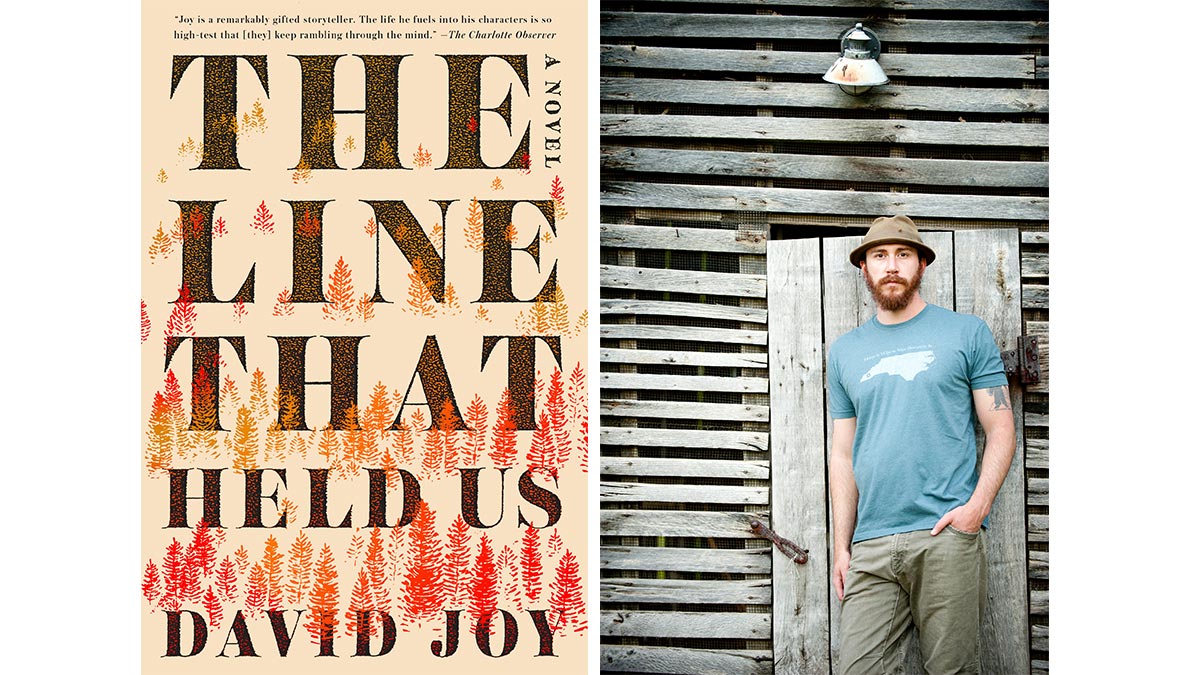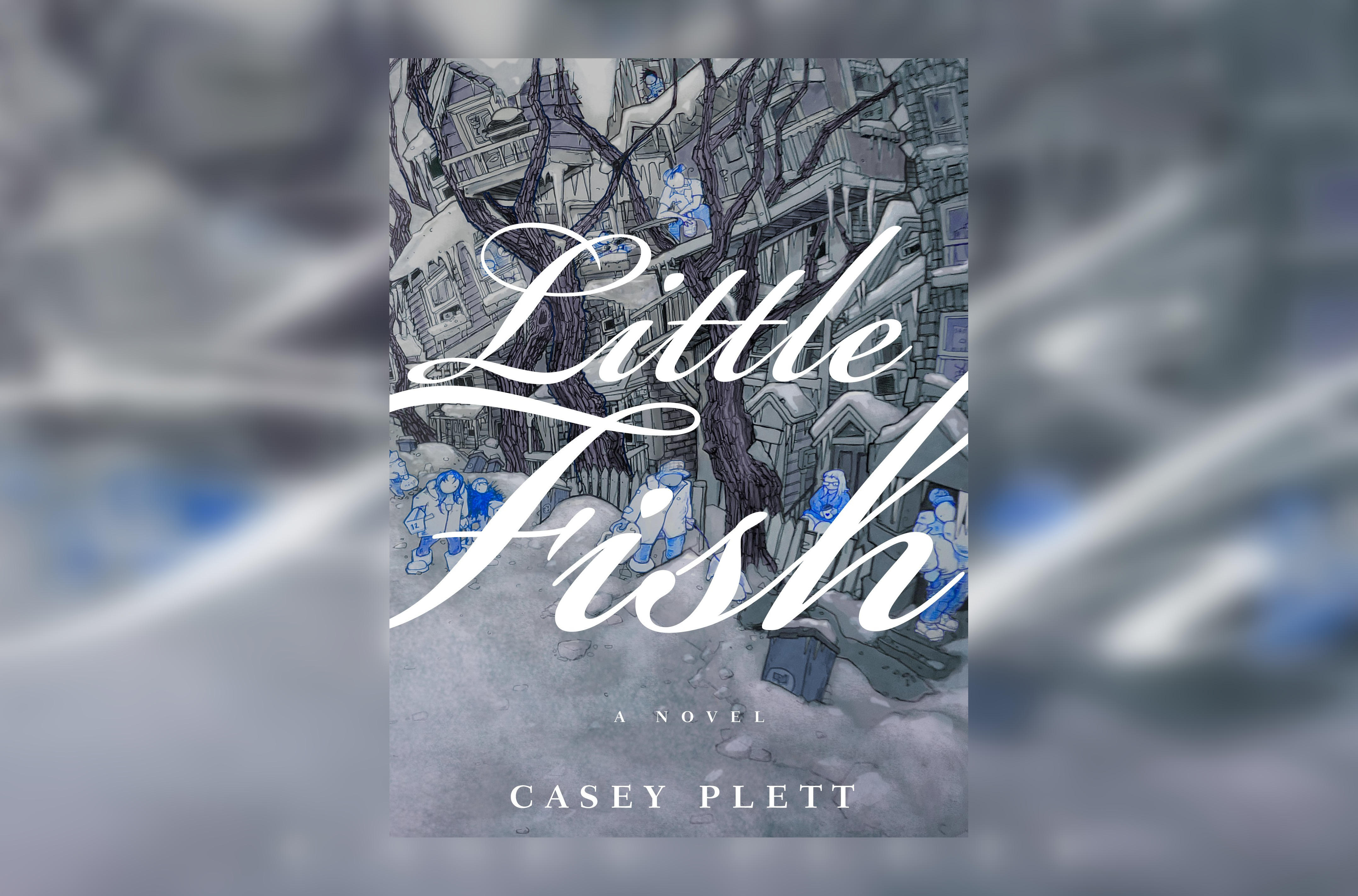The Word Process is an interview series focusing on the writing process, aimed at illuminating the many ways that writers approach the same essential task. In this interview, the novelist Sara Nović discusses why writers need to cultivate curiosity, the importance of “non-writing,” and why she washes the dishes when she’s feeling stuck on a draft.
What does your writing desk look like? What objects, photographs, texts or talismans do you keep there?
It’s funny, because most of the time while I wrote Girl at War, I had no desk at all. I was a bit of a nomad during and after my time in the MFA, constantly moving, and often didn’t have a permanent space of my own. I wrote a lot of that book on the NJ Transit, at cafes, and in the Bobst library at NYU.
Now that I’m a bit more settled, I have a franken-desk. The base is a Target special, and there’s shelving on the top that is a piece of my desk from when I was a kid. Usually I have pictures of friends and family, many to-do sticky notes, and translated copies of Girl at War nearby, but I try to keep the surface as clean as possible. I do have two little glass elephants I sometimes fiddle with, and a stack of flowered notecards that I like to trace when I’m thinking. A lot of writing is not writing.
Also, coffee.
https://www.instagram.com/p/BkDILeCFuoh/?taken-by=photonovic
Describe a typical day in your writing life.
Like having a desk, an everyday routine is pretty new to me; as a student and then an adjunct, my schedule was constantly changing. Now as a full-time professor, my schedule is more clear-cut, but also looks very different during the school year than in the summer. Currently, in summer mode, I wake up at around 7:30 when my dog jumps on my head, and I take him for a walk. I highly recommend a dog. This morning walk is integral to the writing process, because I get to wake up and take in the world around me slowly, and without having to talk to anyone.
Then I buy a cup of coffee, go home to my desk and start to write. For me, writing fiction is a lot more difficult than nonfiction, so I try to work on my novel first. At around 12:30, I take the dog out, eat lunch, and then return to my desk. If I was on a roll with my novel, I’ll keep hacking away at it, but if I’m fed up with it I allow myself to work on one of a variety of “afternoon projects”—book reviews, sports writing, essays, or answering these questions.
When it comes to the craft of writing, what do you think is the most important quality or skill for a writer to possess in order to excel, and why?
Curiosity. If a writer isn’t fascinated almost to the point of obsession with her subjects, how can she describe them in a way that engages others? If a work isn’t pursuing questions, big questions that the writer doesn’t have the answers to, it gets boring, for the reader and writer. Tethered to this is empathy—without both curiosity and empathy, the writer is in danger of creating a surface-level text.
What book, poem, story, essay or quotation inspires you as a writer? What are your literary touchstones, the things that come to mind as you sit down to write a first draft?
These things shift depending on the project, but at the moment I have a James Wood quote taped to my desk: “Narrative secrets are not the same as human mysteries.” For me, this is a reminder not to be a lazy writer, to avoid obscuring things from the reader as a way to create dramatic tension, which is ultimately false. Instead we should be digging through the muck of humanity and examining the tension and stakes that are inherent in our interactions.
What do you do when you feel stuck in your writing?
Wash the dishes. Sometimes it just feels good to finish something. And chores are a good time for daydreaming, a key not-writing part of writing.
What’s the best advice about craft or process that you’ve ever received?
I was in a workshop with Sam Lipsyte who, paraphrasing Gordon Lish, said to us something along the lines of, “You can’t write through a scene just to get to the good part; it all has to be the good part.” That’s stuck with me since, so I try to make all the components of a project equally interesting, even if they are of interest for different reasons.
Sara Nović is the author of the novel Girl at War (Random House, 2015), which won the American Library Association Alex Award, was an LA Times book prize finalist, and was longlisted for the Baileys Prize for Women’s Fiction. Her short fiction and essays have appeared in The New York Times, The Guardian, Harper’s, BOMB, Guernica, Electric Literature, TriQuarterly and others. Nović studied fiction and literary translation in the MFA at Columbia University. She is an Assistant Professor of Creative Writing at Stockton University, and lives in Philadelphia.
Photo credits: Courtesy Random House



